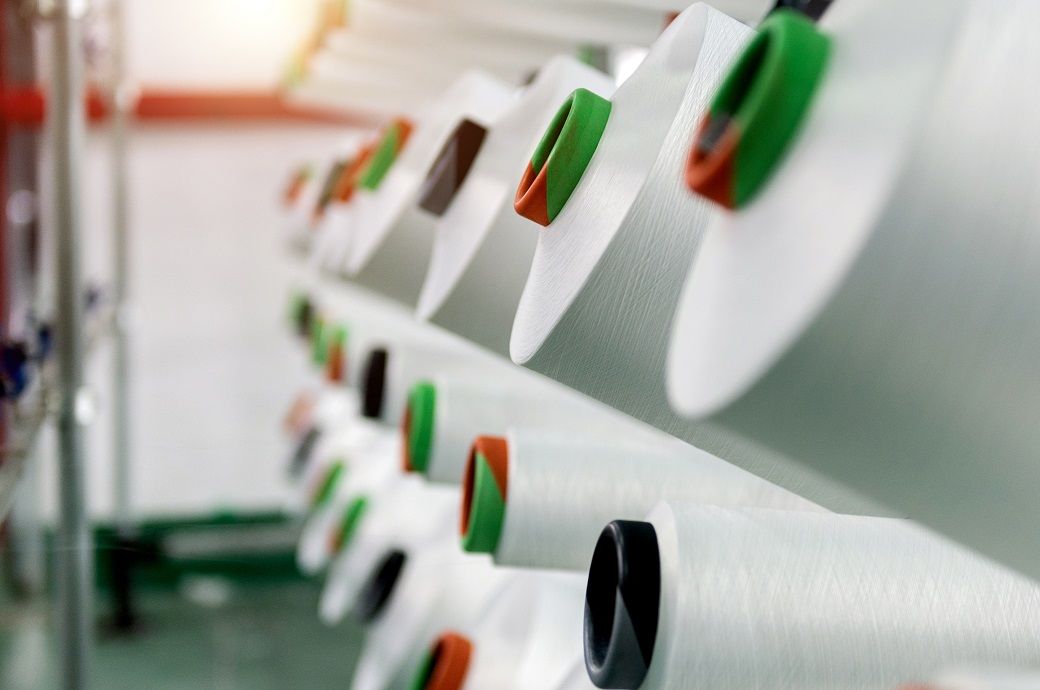
North India's cotton yarn prices did not see a significant movement as demand from the downstream industry did not improve. Traders said that demand from the weaving industry was average. There was no improvement as buyers were still cautious about new deals. However, nobody denied the possibility of support from stronger cotton. Buyers may rush to the market for new buying in the entire value chain as higher cotton prices may lead to a rise in yarn and fabric prices. India's prominent home textile hub, Panipat, also witnessed stability in recycled yarn and its raw materials, such as cotton comber and recycled polyester fibre.
In the Ludhiana market, cotton yarn prices remained stable due to average demand. The market witnessed a balance between the demand and supply of cotton yarn. A trader from the Ludhiana market told Fibre2Fashion, "We cannot say that cotton yarn demand was poor, but it could only support the present price level. However, higher cotton prices and seasonal consumption may lead to an increase in prices. Summer demand is expected to rise this month."
In Ludhiana, 30 count cotton combed yarn was sold at ₹250-260 per kg (GST inclusive); 20 and 25 count combed yarn were traded at ₹240-250 per kg and ₹245-255 per kg respectively; and carded yarn of 30 count was noted at 230-235 per kg, according to Fibre2Fashion’s market insight tool TexPro.
A steady trend was observed in the Delhi market as well. Prices remained at previous levels with average demand from the downstream industry. A trader from the Delhi market told F2F, "There was hope for better buying from the downstream industry. The recent increase in cotton prices may drive yarn prices upwards. Local and export demand for summer garments is expected to pick up in the next few weeks." In this market, 30 count combed yarn was traded at ₹250-255 per kg (GST extra), 40 count combed at ₹275-280 per kg, 30 count carded at ₹227-231 per kg, and 40 count carded at ₹252-255 per kg, as per TexPro.
The recycled yarn market in Panipat experienced average demand. Recycled yarn manufacturers chose to wait for higher demand instead of lowering prices. According to trade sources, the manufacturers were hesitant to decrease prices because they did not anticipate a significant increase in demand at lower price points. They deemed it necessary to protect their profit margins.
In Panipat, 10s recycled PC yarn (Grey) was traded at ₹74-78 per kg (GST paid). Other varieties and counts were noted at 10s recycled PC yarn (Black) at ₹49-52 per kg, 20s recycled PC yarn (Grey) at ₹85-90 per kg and 30s recycled PC yarn (Grey) at ₹133-142 per kg. Cotton comber prices were noted at ₹112-114 per kg and recycled polyester fibre (PET bottle fibre) was noted at ₹67-70 per kg.
Cotton prices in north India strengthened following the possibility of government procurement by the Cotton Corporation of India (CCI). Stronger ICE cotton also lent support to local prices of the natural fibre. Prices increased by ₹50-75 per maund, which is equivalent to 37.2 kg, in north Indian states. According to traders, CCI's increased cotton purchasing at the minimum support price (MSP) will help reduce distress sales by farmers. Seed cotton prices have risen by ₹200 per quintal in the last couple of days. However, the average prices for standard-quality cotton were observed to be approximately 10 per cent below the MSP. Standard-quality seed cotton was traded at ₹6,000-6,200 per quintal. Prices are expected to rise further when CCI's purchases increase.
Cotton arrivals also increased to 26,000 bales of 170 kg each in north India. State-wise arrivals were as follows: Punjab at 3,000 bales, Haryana at 8,000 bales, upper Rajasthan at 8,000 bales, and lower Rajasthan at 7,000 bales. Cotton was priced in Punjab at ₹5,325-5,425 and in Haryana at ₹5,300-5,400 per maund of 37.2 kg. Shri Ganganagar region’s cotton was traded ₹100-125 per maund lower due to poor quality. In lower Rajasthan, cotton was priced at ₹53,700-54,700 per candy of 356 kg.
ALCHEMPro News Desk (KUL)
Receive daily prices and market insights straight to your inbox. Subscribe to AlchemPro Weekly!